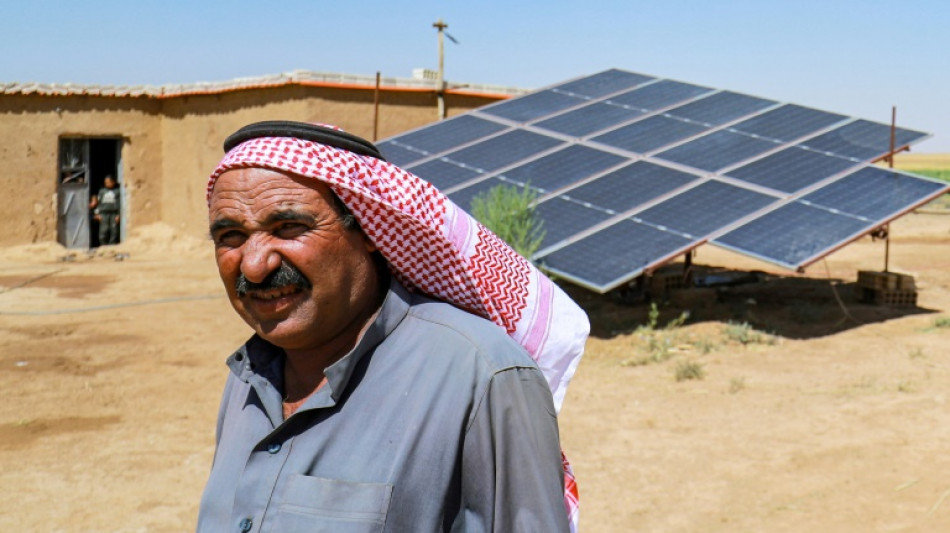
-
 French cycling hope Seixas dreaming of Tour de France debut
French cycling hope Seixas dreaming of Tour de France debut
-
France detects Russia-linked Epstein smear attempt against Macron: govt source

-
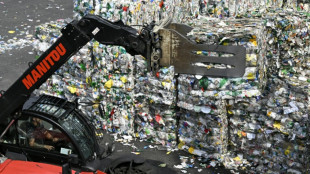 EU nations back chemical recycling for plastic bottles
EU nations back chemical recycling for plastic bottles
-
Terror at Friday prayers: witnesses describe blast rocking Islamabad mosque
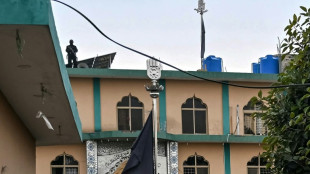
-
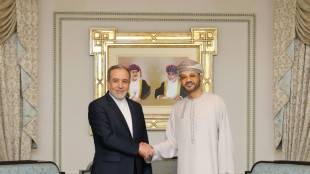 Iran expects more US talks after 'positive atmosphere' in Oman
Iran expects more US talks after 'positive atmosphere' in Oman
-
US says 'key participant' in 2012 attack on Benghazi mission arrested
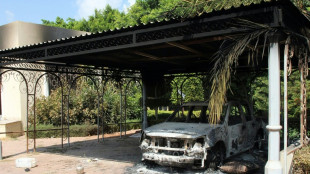
-
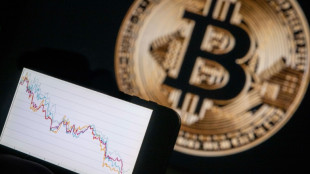 Why bitcoin is losing its luster after stratospheric rise
Why bitcoin is losing its luster after stratospheric rise
-
Arteta apologises to Rosenior after disrespect row

-
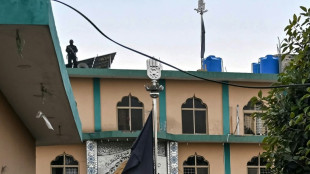 Terror at Friday prayers: witness describes 'extremely powerful' blast in Islamabad
Terror at Friday prayers: witness describes 'extremely powerful' blast in Islamabad
-
Winter Olympics men's downhill: Three things to watch

-
 Ice dancers Chock and Bates shine as US lead Japan in team event
Ice dancers Chock and Bates shine as US lead Japan in team event
-
Stellantis takes massive hit on 'overestimation' of EV demand

-
 Stocks rebound though tech stocks still suffer
Stocks rebound though tech stocks still suffer
-
Spanish PM urges caution as fresh rain heads for flood zone
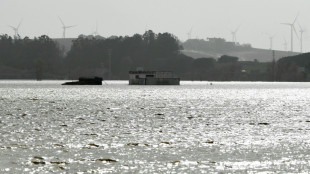
-
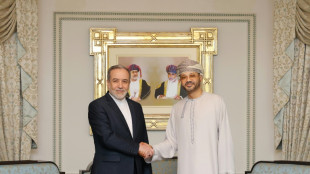 Iran says to hold more talks with US despite Trump military threats
Iran says to hold more talks with US despite Trump military threats
-
Russia accuses Kyiv of gun attack on army general in Moscow

-
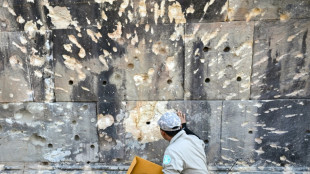 Cambodia reveals damage to UNESCO-listed temple after Thailand clashes
Cambodia reveals damage to UNESCO-listed temple after Thailand clashes
-
Norway crown princess 'deeply regrets' Epstein friendship

-
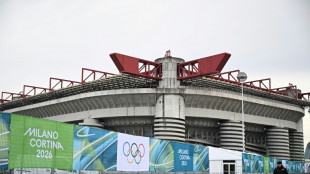 Italy set for Winter Olympics opening ceremony as Vonn passes test
Italy set for Winter Olympics opening ceremony as Vonn passes test
-
England's Jacks says players back under-fire skipper Brook '100 percent'

-
 Carrick relishing Frank reunion as Man Utd host Spurs
Carrick relishing Frank reunion as Man Utd host Spurs
-
Farrell keeps the faith in Irish still being at rugby's top table

-
 Meloni, Vance hail 'shared values' amid pre-Olympic protests
Meloni, Vance hail 'shared values' amid pre-Olympic protests
-
Olympic freestyle champion Gremaud says passion for skiing carried her through dark times

-
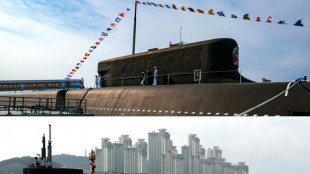 US urges new three-way nuclear deal with Russia and China
US urges new three-way nuclear deal with Russia and China
-
Indonesia landslide death toll rises to 74
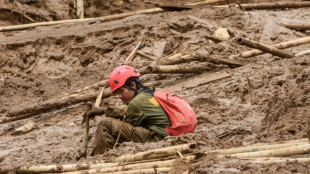
-
 Hemetsberger a 'happy psychopath' after final downhill training
Hemetsberger a 'happy psychopath' after final downhill training
-
Suicide blast at Islamabad mosque kills at least 31, wounds over 130

-
 Elton John accuses UK tabloids publisher of 'abhorrent' privacy breaches
Elton John accuses UK tabloids publisher of 'abhorrent' privacy breaches
-
Lindsey Vonn completes first downhill training run at Winter Olympics

-
 Digital euro delay could leave Europe vulnerable, ECB warns
Digital euro delay could leave Europe vulnerable, ECB warns
-
Feyi-Waboso out of England's Six Nations opener against Wales

-
 Newcastle manager Howe pleads for Woltemade patience
Newcastle manager Howe pleads for Woltemade patience
-
German exports to US plunge as tariffs exact heavy cost

-
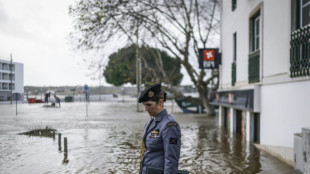 Portugal heads for presidential vote, fretting over storms and far-right
Portugal heads for presidential vote, fretting over storms and far-right
-
Suicide blast at Islamabad mosque kills at least 30, wounds over 130: police

-
 Russia says Kyiv behind Moscow shooting of army general
Russia says Kyiv behind Moscow shooting of army general
-
Greenland villagers focus on 'normal life' amid stress of US threat

-
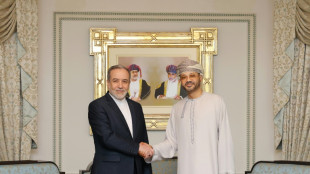 Iran, US hold talks in Oman after Trump military threats
Iran, US hold talks in Oman after Trump military threats
-
Stocks waver as tech worries build
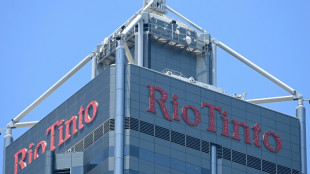
-
 Dupont, Jalibert click to give France extra spark in Six Nations bid
Dupont, Jalibert click to give France extra spark in Six Nations bid
-
'Excited' Scots out to prove they deserve T20 World Cup call-up

-
 EU tells TikTok to change 'addictive' design
EU tells TikTok to change 'addictive' design
-
India captain admits 'there will be nerves' at home T20 World Cup

-
 Stellantis takes massive hit for 'overestimation' of EV shift
Stellantis takes massive hit for 'overestimation' of EV shift
-
'Mona's Eyes': how an obscure French art historian swept the globe

-
 Iran, US hold talks in Oman
Iran, US hold talks in Oman
-
Iran, US hold talks in Oman after deadly protest crackdown

-
 In Finland's forests, soldiers re-learn how to lay anti-personnel mines
In Finland's forests, soldiers re-learn how to lay anti-personnel mines
-
Israeli president visits Australia after Bondi Beach attack

| SCS | 0.12% | 16.14 | $ | |
| GSK | 1.11% | 59.835 | $ | |
| NGG | 0.79% | 87.585 | $ | |
| CMSC | -0.19% | 23.505 | $ | |
| BTI | 1.55% | 62.933 | $ | |
| BCC | 1.65% | 90.66 | $ | |
| BCE | -0.71% | 25.39 | $ | |
| AZN | 3.29% | 193.53 | $ | |
| CMSD | 0.17% | 23.931 | $ | |
| RIO | 2.12% | 93.09 | $ | |
| JRI | 0.76% | 12.979 | $ | |
| RBGPF | 0.12% | 82.5 | $ | |
| RYCEF | 0.3% | 16.67 | $ | |
| VOD | 2.7% | 15.025 | $ | |
| BP | 2.05% | 38.97 | $ | |
| RELX | -1.67% | 29.595 | $ |

Farmers turn to solar power in Syria's former breadbasket
At his farm in Syria's northeast, Abdullah al-Mohammed adjusts a large solar panel, one of hundreds that have cropped up over the years as farmers seek to stave off electricity shortages in the war-ravaged region.
Solar energy has offered a lifeline for the farmers amid drought and power shortages, but some warn the boom also has environmental costs in the once-fertile region.
"We are trying to revive our land," despite dwindling groundwater reserves, said Mohammed, 38, as he oriented the panel towards the sun near his cotton fields.
In his village of Al-Haddadiya in Hasakeh province, farmers are using solar energy to power irrigation systems for all kinds of crops, from vegetables to wheat, barley and cotton.
The father of three said he needs a reliable power supply to pump groundwater around 60 metres deep (nearly 200 feet) now -- compared to just 30 metres a few years back.
Northeast Syria is about 0.8 degrees Celsius (two degrees Fahrenheit) hotter today than it was 100 years ago and likely to experience drought every three years, according to a report last year by iMMAP, a Washington-based, data-focused non-profit.
The area was the country's breadbasket before 2011, when the government repressed peaceful protests, triggering a conflict that has killed more than 500,000 people and displaced millions.
The war has battered the country's infrastructure and industry, and the state barely supplies a few hours of electricity per day.
- 'Saved from extinction' -
Farmers in the now Kurdish-held region used to rely on state electricity and subsidised generator fuel for water pumps and irrigation, but power outages and rising fuel costs have compounded the climate-related challenges.
"Solar energy has saved agriculture and farmers from extinction," Mohammed said, near a patch of waist-high plants and sunflowers swaying gently in the wind.
From the rebel-held northwest to government-controlled areas, solar panels have become common in Syria, providing power for homes, public institutions and even camps for the displaced.
Between 2011 and 2021, Syria's state electricity production "dropped significantly to almost 57 percent" and power generation capacity plunged to 65 percent, according to a 2022 United Nations report.
Across Hasakeh province, solar panels have become indispensable for agriculture.
Around 10 kilometres (six miles) from Al-Haddadiya, farmer Hamid al-Awda began using solar power six years ago.
He has now installed 272 solar panels across his vast farmlands.
"Most people started selling their generators and replacing them with solar energy," said Awda, 60.
"Farmers who cannot afford solar energy and generators have seen their crops wither and dry out," he said, sweat trickling down his face.
- Downsides -
Further north near the city of Qamishli, farmer Mohammed Ali al-Hussein said shortages of generator fuel once kept him from irrigating his crops for days.
"But now, we can water the lands from sunrise to sunset thanks to solar panels," said the 22-year-old, using a massive hose.
However, the iMMAP report also warned of a downside of the area's solar boom.
"Water pumps working on solar power... are also blamed for increased extraction and resulting in declining water table," the report said.
The rising use of groundwater wells also results in increased salinity, it added.
Didar Hasan from Wanlan, a local company involved in solar energy, said demand has boomed in northeast Syria in recent years amid power outages lasting up to 20 hours a day.
Demand will keep rising and "people will continue to rely heavily on solar energy, not because it is renewable... but because they need electricity," he told AFP.
While solar power has kept many farmers from abandoning their land and moving to the city, it comes with a future environmental cost, he warned.
Much of people's solar infrastructure is either "used, worn-out panels, imported from Europe where they are deemed electronic waste" or low-grade solar systems mostly made in China, he said.
Such materials have a lifespan of just a few years, Hasan added.
"After that, we will be left with tens of thousands of unusable solar panels -- essentially waste" -- in an area with no adequate facilities to process it, he said.
F.AbuZaid--SF-PST




